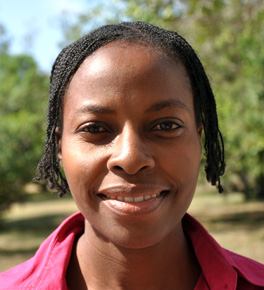OUR FELLOWS

OUR FELLOWS
“Lessons learned” from a failed agricultural development project don’t satisfy Victoria Adeyemi Adeyemo; this determined agricultural economist wants the lessons applied to ensure that women and vulnerable groups are included in future planning and decision making that affect their lives.
A master’s student in agri-business management and finance, Adeyemo is examining the outcomes of Fadama II—a large-scale agricultural development program launched in 2004 aimed at harnessing the potential of lowland flood plains to increase agricultural productivity. She is examining social inclusion, determining to what extent women and vulnerable groups benefited from the project.
The project exacerbated the very poverty it sought to alleviate,” says Adeyemo. The program ended in 1999 and in 2004 the government introduced Fadama II; this time, they want to get it right. The concept of social inclusion was consciously considered and implemented. Adeyemo is evaluating the impact that social inclusion can have on poverty alleviation.
Field of Research
Impact of the social exclusion of vulnerable groups and women on the effectiveness of a major agricultural development, poverty-alleviating program in Nigeria.
